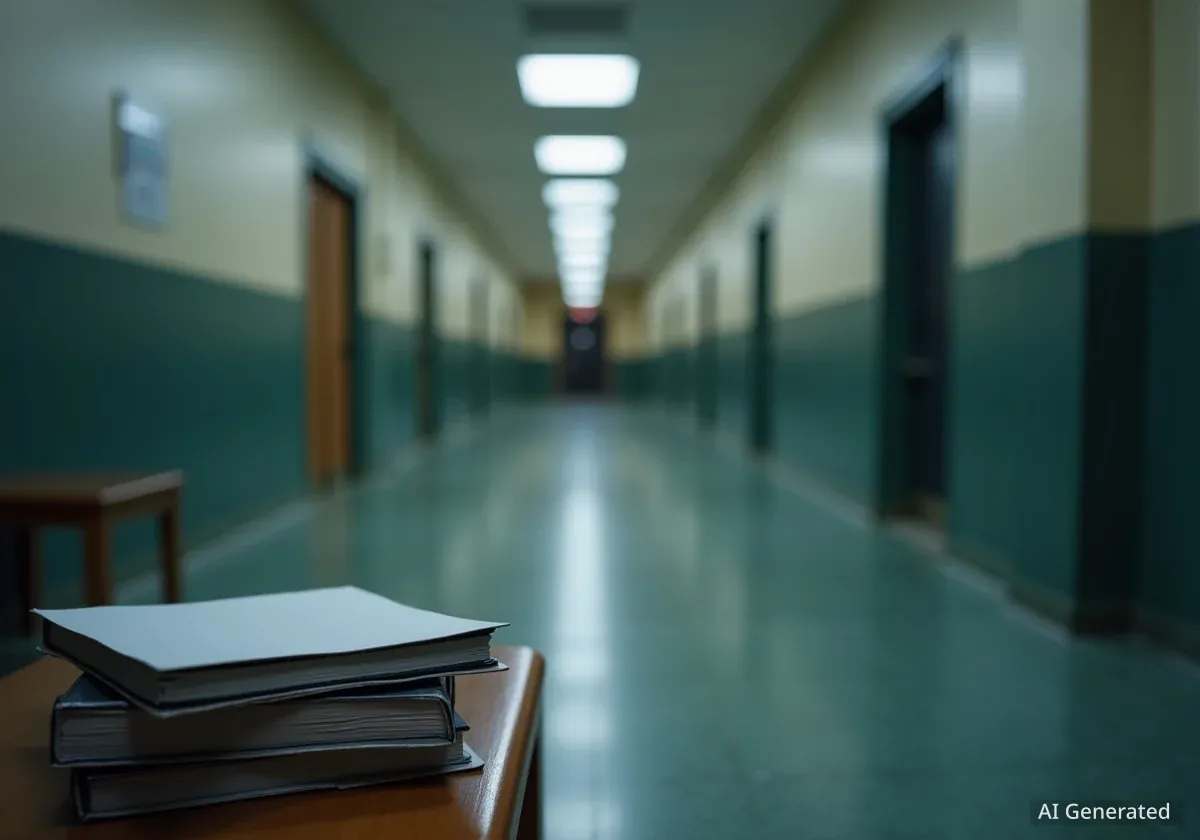Dropout rates at South Korea's universities of education have reached a record high for the second consecutive year, with 4.2 percent of students leaving their programs in 2024. This figure, which matches the rate from 2023, highlights a growing disillusionment with the teaching profession amid reports of declining teacher authority and difficult working conditions.
Data released by the Korean Educational Development Institute shows a sharp increase in students abandoning their teaching studies, a path once considered a secure route to stable employment. The trend suggests a significant shift in perception about a career in education among the country's youth.
Key Takeaways
- The dropout rate at Korea's education universities was 4.2% in 2024, a record high for the second year in a row.
- This rate has climbed sharply from below 1% before 2019, now approaching the 5.4% dropout rate of general universities.
- Key factors include poor working conditions, increased parental complaints, modest pay, and a shrinking number of job openings.
- A 2023 survey found only 19.7% of current teachers would choose the profession again, the lowest figure since 2012.
A Decade of Drastic Change
The decision to leave teacher training programs has become increasingly common over the past six years. Until 2018, the attrition rate at these specialized universities consistently remained below one percent. However, the numbers have since climbed at an alarming pace.
According to the Korean Educational Development Institute, the rate began its steady ascent in 2019, reaching 1.5 percent. It continued to rise to 1.7 percent in 2020 and jumped to 2.4 percent in 2021. A more significant increase occurred in 2022 when the rate hit 3.2 percent, before surging to the 4.2 percent plateau seen in 2023 and 2024.
Dropout Rate Progression
- Until 2018: Below 1%
- 2019: 1.5%
- 2020: 1.7%
- 2021: 2.4%
- 2022: 3.2%
- 2023-2024: 4.2%
This trend is closing the gap between specialized education schools and general universities, where dropout rates were 5.3 percent and 5.4 percent in 2023 and 2024, respectively. This convergence indicates that the factors that once made teaching a uniquely attractive career are rapidly diminishing.
Top Institutions Not Spared
Even the most prestigious teacher training institutions in the country are experiencing this exodus. Data from the Ministry of Education revealed that last year, 103 students dropped out of Seoul National University of Education. Similarly, 105 students left Gyeongin National University of Education. Both are widely regarded as leading institutions for training elementary school teachers.
The high number of departures from these top-tier universities underscores the widespread nature of the problem, suggesting that the prestige of an institution is no longer enough to retain students who are reconsidering their career paths.
The Deteriorating Reality of the Teaching Profession
Analysts and educators point to a combination of worsening working conditions and evolving societal values as the primary drivers behind the high dropout rates. Many teachers now report feeling as if they are part of the "service industry," facing unreasonable demands and frequent complaints from parents with insufficient institutional support.
High-Profile Incidents Raise National Concern
The challenges faced by educators were brought into the national spotlight following several tragic events. In 2023, a young teacher at Seoul's Seoi Elementary School took her own life, allegedly after facing intense pressure from parents. A similar case emerged this year on Jeju Island, where another teacher reportedly expressed severe distress over parental complaints before her death. These incidents have sparked a nationwide conversation about the need for better protection of teachers' rights.
The emotional labor required has grown significantly, while protections for teacher authority have not kept pace. This difficult environment is compounded by modest pay that lags behind salaries in the private sector, particularly at major corporations.
"Graduates of universities of education have few career options beyond teaching. As hiring declines and working conditions deteriorate, an increasing number of students are choosing to leave school early."
This sentiment is reflected in broader surveys of active educators. A 2023 poll by the Korea Federation of Teachers’ Associations found that only 19.7 percent of respondents would choose the teaching profession again if given the chance. This is the lowest level of satisfaction recorded since the survey began in 2012.
Economic Pressures and a Competitive Job Market
Beyond classroom conditions, economic factors are also playing a crucial role. South Korea's consistently low birthrate has led to a shrinking student population. Consequently, the demand for new teachers has decreased, making the job market more competitive than ever.
The teacher certification exam has become a significant hurdle, with a growing number of graduates passing the test but failing to secure a position. In the past, graduating from an education university was seen as a near-guarantee of employment. That is no longer the reality for many.
The number of certified teachers who remain unassigned to a school has been rising steadily. This uncertainty adds another layer of pressure on students who have already invested years in a demanding and specialized field of study.
With limited career alternatives for those with a degree in education, students are increasingly concluding that the difficult path to becoming a teacher may not lead to the stable and rewarding career it once promised. This calculation is prompting many to change course before they even graduate, contributing to the record-high dropout numbers.





